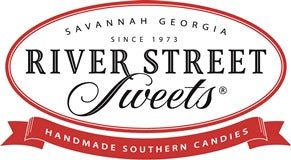
The Power of Employee Gift Giving

The Power of Employee Gift Giving: Boosting Job Satisfaction Through Thoughtful Recognition
In today’s competitive job market, companies are constantly seeking new ways to enhance employee satisfaction and foster a positive work environment. One of the most effective, yet often overlooked, strategies is employee gift giving. While it may seem like a simple gesture, research reveals that thoughtful gifts can significantly impact job satisfaction, morale, and overall productivity.

The Connection Between Gifts and Job Satisfaction
A recent study by the Society for Human Resource Management (SHRM) found that 69% of employees who received a gift from their employer reported a higher level of job satisfaction. This statistic underscores the profound effect that recognition and appreciation can have on an employee’s perception of their work environment. When employees feel valued and appreciated, their job satisfaction naturally improves, leading to increased engagement and loyalty.
Furthermore, a survey conducted by the Incentive Research Foundation (IRF) revealed that 83% of employees who received a well-chosen gift felt more motivated and engaged in their roles. The survey highlighted that the impact of gift giving extends beyond immediate gratification; it fosters a sense of belonging and commitment to the company’s goals.

The Psychological Impact of Thoughtful Gifts
The psychology behind gift giving is rooted in the principle of reciprocity—the idea that people are inclined to return favors and positive gestures. When employees receive gifts, they experience a sense of appreciation and are more likely to reciprocate through enhanced effort and dedication. According to a study published in the Journal of Applied Psychology, employees who perceive that their contributions are recognized are 50% more likely to demonstrate higher levels of productivity and performance.
Moreover, personalized gifts that reflect an employee’s interests or achievements have been shown to be particularly effective. A report by the Corporate Gift Association (CGA) found that employees who received personalized gifts were 40% more likely to report a sense of loyalty to their employer compared to those who received generic items. This personalization not only demonstrates thoughtfulness but also acknowledges the unique value each employee brings to the organization.

The ROI of Employee Gift Giving
Investing in employee gifts can yield significant returns for businesses. A study by Gallup indicated that organizations with high employee engagement have 21% higher profitability and 17% higher productivity than those with lower engagement levels. Given that thoughtful gifts can play a pivotal role in boosting engagement, the return on investment (ROI) for gift giving can be substantial.
Additionally, employee retention rates are positively affected by recognition and appreciation. The Work Institute’s 2023 Retention Report found that 32% of employees who left their jobs cited a lack of recognition as a key factor in their decision to resign. By regularly acknowledging and rewarding employees through gifts, companies can improve retention rates and reduce turnover-related costs.

Implementing a Gift Giving Strategy
To maximize the benefits of employee gift giving, it’s important to implement a strategic approach. Here are some best practices to consider:
- Personalization: Tailor gifts to individual preferences and achievements to make them feel truly appreciated.
- Timeliness: Give gifts in a timely manner, such as in response to specific accomplishments or milestones.
- Consistency: Ensure that gift giving is part of a broader recognition strategy to maintain fairness and inclusivity.
- Quality: Choose high-quality gifts that reflect the value you place on your employees' contributions.
Conclusion
Employee gift giving is more than just a gesture of goodwill; it’s a strategic tool for enhancing job satisfaction, boosting engagement, and improving overall productivity. By investing in thoughtful and personalized gifts, companies can foster a more motivated and loyal workforce, ultimately driving long-term success. As the workplace continues to evolve, recognizing and appreciating employees through meaningful gifts will remain a key component of a thriving and dynamic organizational culture.

Leave a comment